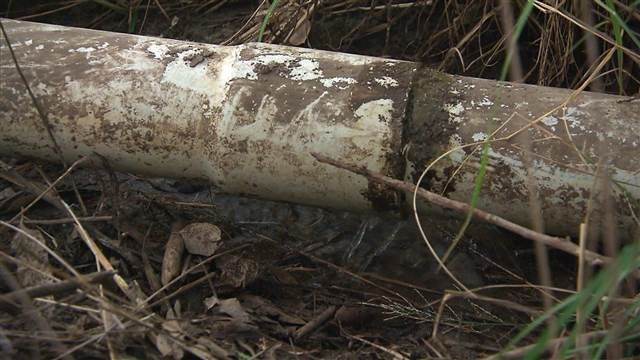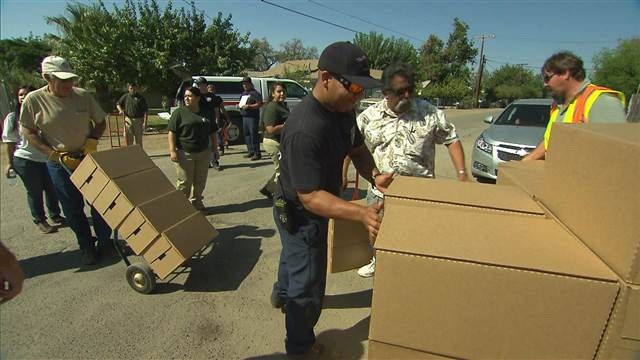“Look,” said Carlos Chavez, a retired farm hand in the small town of Seville. He turned the wheel on a big outdoor faucet, the kind of high pressure spigot that’s illegal to operate in California without at least a hose attached to it. Nothing came out except air. It was the same story inside his home, where his plates piled up beneath a kitchen faucet as dry as the shop model.
“We’re the epicenter,” said Eric Coyne, a spokesperson for the Tulare County Resource Management Agency. "The need here is dire."
With the help of volunteers, Tulare County has handed out thousands of gallons of emergency bottled water, a lifeline to the modern world. But now the state is also working on the well problem, according to Kelly Huston, deputy director of the Governor's Office of Emergency Services. Just don't expect a solution to flash like lightning. "As the drought continues," he warned in an email, "more wells are likely to go dry."
“It’s never been this bad before,” said Chavez, looking back on nearly 80 years in Seville, which hasn’t had reliable running water in months.
Chavez and his wife spent their prime as fruit pickers and boxers, making a good enough living to buy a little house, raise children, retire comfortably. In his youth, Chavez recalls, “everybody worked in the fields and the water was cold and clean and it tasted good. But now…” He stopped and looked up, pointing to the brown spire on his once-green pine tree, the mark of another drought-induced death.
A few blocks away, Maria Dominguez, a 28-year-old mother of two, pulled over to question a stranger she saw standing near the town’s faltering well. “What can you tell me about my water?” she hollered. “I don’t know how much more of this I can take.”
Since the middle of summer, she’s been filling buckets with a friend a town over, then leaving them outside to warm in the sun. It’s the only way her mother, a picker, can sluice the field dust off before kissing her grandkids goodnight.
One of her neighbors, Ray Quintana, was nearby helping the delivery. He served two combat tours in Vietnam, driving convoys through the jungle. Now, at 62, the water crisis has made his hometown feel like a conflict zone instead of some of the richest farmland on earth.
“To shower, I use a cup, just like when I was in ‘Nam,” he said, stepping away from a stream of glistening neighbors, most of them just back from the fields. Some had dust on their ear lobes and deep in their wrinkles. None had a simple way to shower in town that night.
“We’re living in a third world country now,” he continued.





